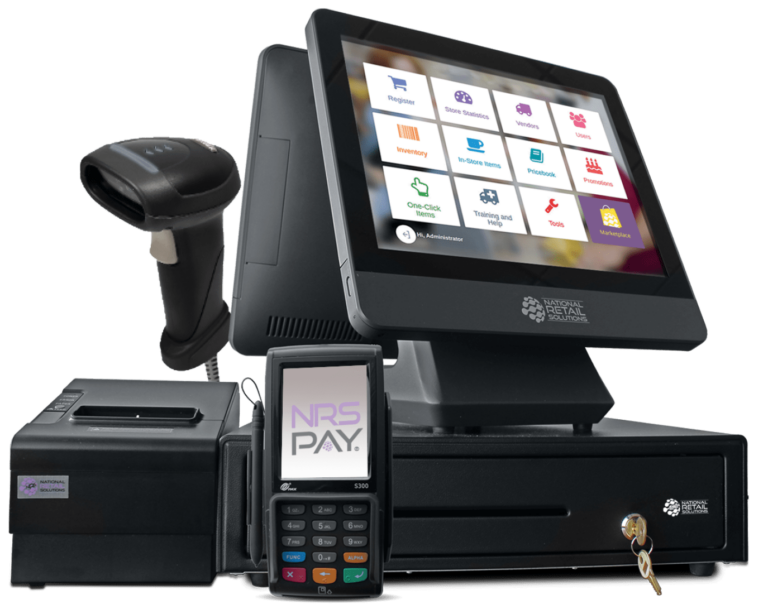Point of Sale Systems for Online Retail: Bridging Digital and Offline Sales

In today's fast-paced shopping environment, the distinction among online and offline transactions is growing indistinct. An essential critical tool that assists businesses adapt to this change is the POS solution. These systems serve as the core for sales, client interaction, and stock control, allowing businesses to simplify operations while improving the overall customer experience. While online shopping continues to flourish, the implementation of POS systems is vital for retailers looking to create a seamless shopping environment that connects both their physical stores and online platforms.
Understanding what a POS system is and how it works can empower businesses to make informed decisions that meet their specific needs. Starting with the development of traditional cash registers to modern cloud-based solutions, the tool has come a long way and has the ability to revolutionize operations across multiple industries. This piece will guide you through the essential features and functionalities of POS systems, their benefits for e-commerce, and how they can improve efficiency, security, and customer interaction. Regardless of whether you're operating a small shop or a thriving restaurant, exploring the appropriate POS system can set you on the road to success in the current competitive market.
Grasping Point of Sale Systems
A POS system is a blend of hardware and programs that businesses use to oversee sales transactions. At its core, a POS system manages customer purchases, keeps an eye on inventory, and generates sales reports. Current POS systems have transformed dramatically from classic cash registers, melding sophisticated technology to streamline operations and improve the shopping experience, both at physical locations and over the internet.
The progress of POS systems has led to the development of internet-based solutions, allowing businesses to manage their sales data from any location with an online connection. These systems allow real-time updates and access to crucial business metrics, empowering owners to take informed decisions. Furthermore, features such as customer relationship management integration and inventory management offer businesses the tools needed to improve productivity and grasp customer preferences.
Incorporating a POS system into your business can result in improved efficiency and a more satisfying customer experience. With the ability to process various payment methods, including touchless payments, and to support mobile transactions, your business can cater to the changing needs of customers. As technology develops, the prospects of POS systems looks promising, incorporating artificial intelligence and data analytics to provide more profound insights into sales patterns and customer behavior.
Selecting the Best POS System
Determining the appropriate POS system is essential for enhancing operations in both online retail and brick-and-mortar environments. Start by reviewing your operational needs. Take into account elements such as the size of your company, the quantity of sales, and distinct industry demands. A system that is effective for a restaurant may not fulfill the needs of a shop, so it’s important to assess functionalities that align with your operational goals.
Next, research the various types of POS solutions out there. Cloud-based systems offer versatility and scalability, that allow access from various devices and locations. On-premise solutions might be suitable for businesses that choose to keep their information in-house. Irrespective of your decision, ensure the system offers essential functionalities like inventory oversight, sales reporting, and CRM integration. Familiarizing yourself with both modern and up-to-date and traditional systems will assist you make an intelligent decision.
In conclusion, consider the enduring implications of your selection. Analyze the costs involved, including initial fees, monthly fees, and extra costs for features like transaction handling or assistance. Training and help are also critical aspects; a user-friendly system with reliable customer support can considerably enhance employee productivity. Take the time to read testimonials and perhaps conduct a trial to find the most suitable fit for your unique business setting.

Improving Business Efficiency with POS
A current POS platform is a fundamental component for boosting commercial productivity throughout various sectors. By integrating different capabilities such as sales monitoring, stock control, and customer relationship management into a comprehensive platform, companies can simplify their operations. POS Systems for Restaurants minimizes the need for many individual systems, permitting for more efficient data access and evaluation. Consequently, team members can spend less time on administrative tasks and additional time concentrating on customer engagement and enhancing customer service standards.
Furthermore, sophisticated POS systems deliver real-time data analytics that allow organization owners to make educated decisions. By examining sales trends, inventory quantities, and customer behavior, organizations can optimize their inventory and improve their promotional strategies. Utilizing a POS system provides businesses the capabilities to predict customer needs and tailor their advertising efforts, culminating in more personalized offerings that encourage customer loyalty.
In conclusion, modern POS systems support movement, which is vital in the modern rapidly changing shopping and hospitality environments. Mobile POS systems enable staff to assist shoppers throughout the retail space or food establishment, reduce lines at checkout, and provide a tailored shopping experience. This adaptability not only increase client satisfaction but also enhances sales potential, thus enhancing overall business effectiveness.
